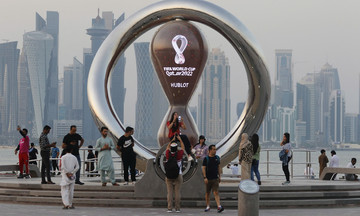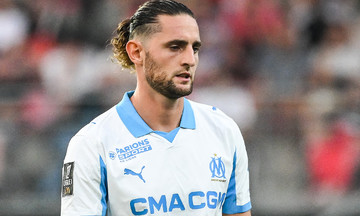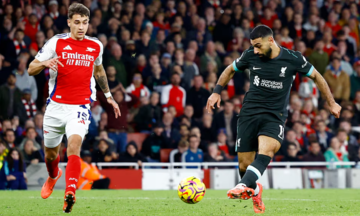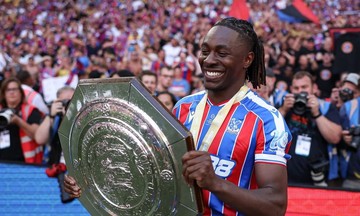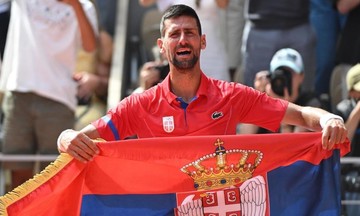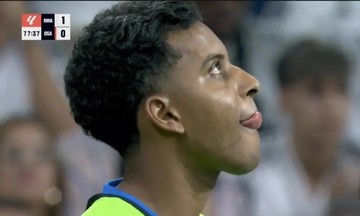In the 54-year history of the FIDE rating system, seven players have held the world number 1 spot. They are Bobby Fischer, Anatoly Karpov, Garry Kasparov, Vladimir Kramnik, Veselin Topalov, Viswanathan Anand, and Magnus Carlsen. The rating used is the standard chess Elo rating.
Most contemporary chess grandmasters, including Carlsen, consider Garry Kasparov the greatest of all time. The main statistic supporting this is Kasparov's record of 255 months (over 21 years) as the world number 1. Carlsen is second, with 182 months (over 15 years). To surpass Kasparov, the Norwegian grandmaster needs another 6 years at the top, which is entirely possible.
However, Carlsen has been the world's top player for 14 consecutive years, a feat Kasparov did not achieve. During Kasparov's reign, Karpov briefly overtook him on several occasions.
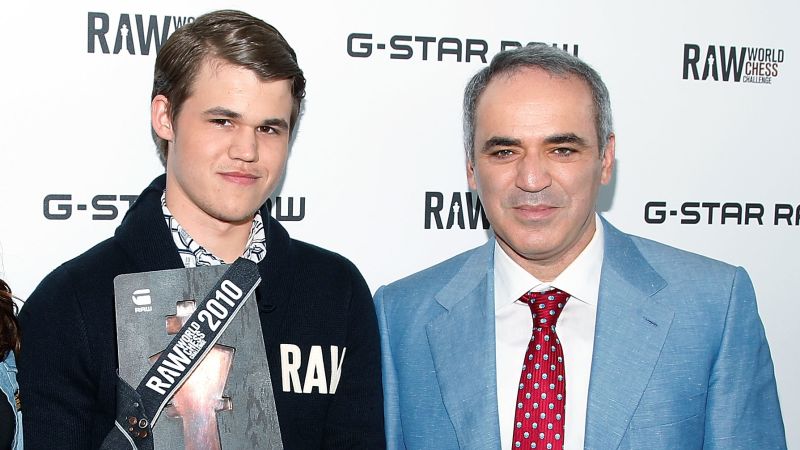 |
Kasparov (right) and his former student, Carlsen, at the RAW World Chess Challenge in New York City on 10/9/2010. Photo: CNN |
Kasparov (right) and his former student, Carlsen, at the RAW World Chess Challenge in New York City on 10/9/2010. Photo: CNN
The 139-year history of the world chess championship recognizes 18 undisputed champions, not counting earlier players like Paul Morphy. "Undisputed" here excludes periods when more than one world chess championship was held simultaneously.
Carlsen has won the world championship 5 times: in 2013, 2014, 2016, 2018, and 2021. His record still trails Emanuel Lasker, who holds the record with 6 undisputed world championship titles. Lasker also holds another difficult-to-break record: 27 years as world champion. The player behind him is Alexander Alekhine with 17 years. This was about 100 years ago when world championships were not held as regularly as they are now.
While not leading in world number 1 rankings or world championship wins, Carlsen holds impressive records. He achieved the highest ever Elo rating of 2,882 in 2014 and 2019. Kasparov follows with 2,851.
Elo is calculated based on the results of each game and the rating difference between players. For example, a player with a higher Elo will gain fewer points against lower-rated opponents.
However, Elo also experiences inflation. Nowadays, more strong players emerge with high Elo ratings. If the top player is dominant, like Carlsen, they have more opportunities to increase their Elo. But dominating a field of so many strong players is not easy.
Carlsen would also likely win against Kasparov or Fischer at their peak. With the help of computers, modern players' opening preparation has reached a new level. Their endgame technique has also improved through computer training.
"Fischer would lose to all the top players like us," said world number two Hikaru Nakamura in 2020. "Because chess has changed a lot in 50 years. But if Fischer could train with a computer for a few years, he could reach our level."
Since Carlsen's first blitz title in 2009, he has won 20 world championships across various time controls. During this time, no other player has won more than three world titles. The gap between the number 1 player and the rest can also be a measure to compare with other legends.
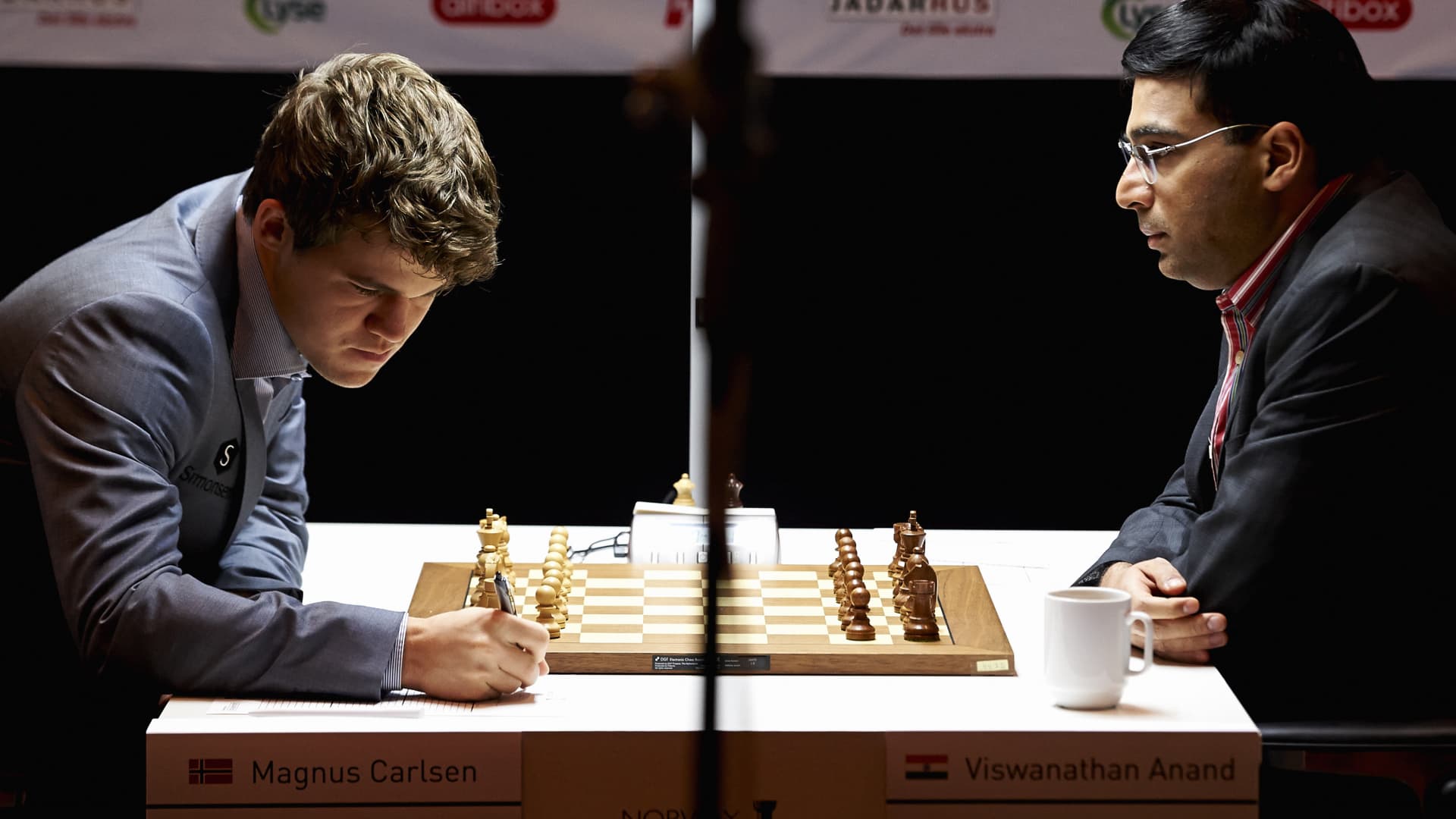 |
Carlsen (left) and Anand during the 2014 World Chess Championship in Sochi, Russia, in 11/2014. Photo: CNBC |
Carlsen (left) and Anand during the 2014 World Chess Championship in Sochi, Russia, in 11/2014. Photo: CNBC
At one point, Carlsen was 74 Elo points ahead of the second-ranked player, Kramnik, in 10/2013. This record belongs to Fischer, with a difference of 125 Elo points (2,785-2,660) over Boris Spassky in 7/1972. Kasparov is second with a gap of 82 Elo points (2,851-2,769) over Anand in 1/2000.
However, this statistic also has its issues: the quality of the world number two varies over time. For example, Spassky cannot be compared to Karpov, Kasparov's rival for about 20 years. The difference between Kasparov and the world number three also reached 125 Elo points at times.
But Fischer's absolute dominance in the late 1960s and early 1970s is undeniable. He won the US Championship with a perfect 11/11 score in 1964, at the age of 21. In the 1972 Candidates Tournament, Fischer won all 6 games against Mark Taimanov and Bent Larsen. Fischer's peak did not last long, so he is considered only the third greatest player of all time, behind Kasparov and Carlsen, according to Nakamura.
In Chess24's list of the greatest chess champions in 2020, Kasparov was ranked first, followed by Carlsen and Fischer. Reaching the top is one thing; maintaining the number 1 position for decades is another. Kasparov remains number one historically. But Carlsen is getting closer to his former mentor's position.
Compiled by Xuan Binh



